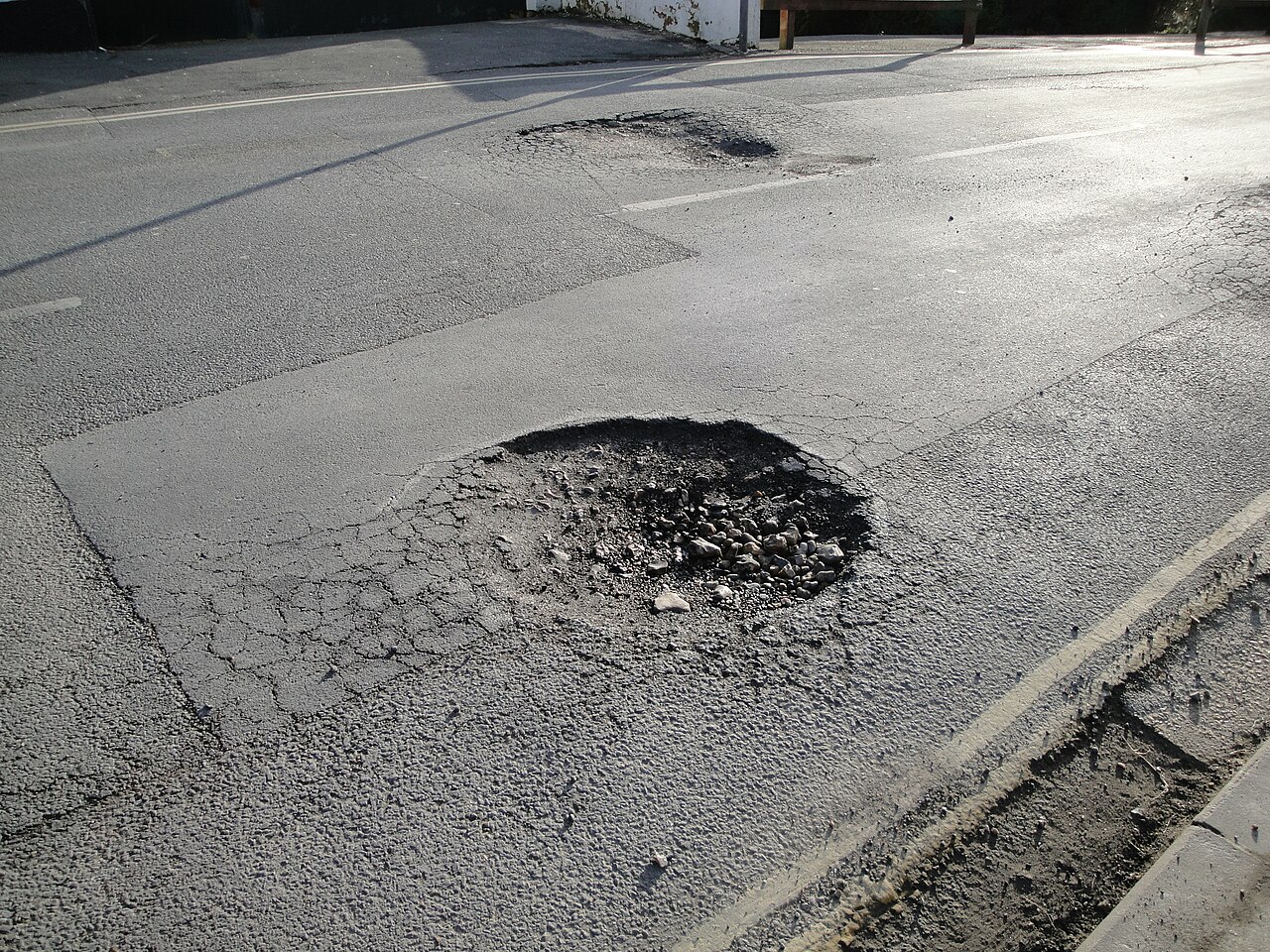Mayor Parker seeks to reduce the number of campaign issues for this fall by half.
City officials are hoping to replace more concrete segments of streets in lieu of simply patching over Houston’s many potholes, part of an emergency response that Mayor Annise Parker called for earlier this year when she branded the onslaught of road maintenance needs a “crisis situation.”
City Council on Wednesday will consider approving a series of contracts with a combined emergency spending authority of up to $5.6 million, enough to replace more than 550 concrete panels. Public Works and Engineering officials also want to spend that cash, part of the city’s Dedicated Drainage and Street Renewal Fund, more quickly than usual; the agenda item would not require work associated with the contract to come back to City Council.
The replacements will go to roads identified through calls to the city’s 311 line, with an emphasis on major thoroughfares, said department spokesman Gary Norman. The focus will be on roads not already scheduled for work on the city’s five-year Capital Improvement Plan, but Norman said there may be some exceptions.
All of the panel work should be completed in the next 180 days, weather permitting.
“This is work that might have taken years to complete without this extra funding,” Norman said in an email, “instead we are able to do it now.”
The idea is to create a second tier of pothole repairs, doing more substantive work on pockmarked roads that aren’t scheduled for major work or reconstruction under the city’s five-year capital improvement plan.
Short of road reconstruction, concrete panel replacements are considered among the more expensive and substantive repairs. The work can be time consuming, pulling up a bad panel and then completely replacing it with a new concrete one rather than simply sending a truck out to quickly fill it with asphalt. About 60 percent of Houston’s streets are made up of a series of concrete panels.
The emergency spending authority won’t cure the city’s massive pothole problem, nor will it address what Mayor Annise Parker and public works officials say is the fundamental problem – that potholes are merely a symptom of chronic underinvestment in roads during the past few decades. But public works officials say it marks an important shift in philosophy, noting they have never before done concrete panel replacement on this scale.
“What you are actually witnessing is a transition in philosophy with respect to ‘just go out there and fix it’ as opposed to ‘let’s go fix it with a more permanent fix where we’re able to,'” Public Works Director Dale Rudick told a City Council committee this month. “And that of course takes resources.”
See here for the background. Council did approve the funds so look for this kind of construction near you. They’ve been doing this very work on Studemont just south of I-10, in front of the Kroger, and it’s a vast improvement over the moonscape that was there before. Now that we have this solved, I guess we can spend the next six months talking about getting tough on pensions, because there aren’t any other issues for the upcoming election. Woo hoo!


Given how many roadways are marked with potholes, replacing 550 panels is not going to amount to much more than a drop in the bucket overall so the discussion by mayoral candidates is not going away any time soon. Some years back when a similar proposal was made, the city decided to go with those big trucks that quickly lay a patch of asphalt instead, the reasoning being that it was so much cheaper and could fix so many more problems. Needless to say, those repairs typically lasted a very short time and were more about public relations than anything else. Had more been done for intermediate solutions (like this one) or longer term investments, it wouldn’t be such a problem now.
If a pothole is really bad report it to 311 (you can do it online). I have reported ones that I had to avoid either daily or occasionally for weeks and months, and they were fixed within a week of the report. Coincidence? maybe, but it is possible that people just didn’t care enough to let the city know. None of the fixes were beautiful and perfect, but cars and bicycles don’t have to do dangerous maneuvers to avoid damage or injury at those spots now.
The main problem with pothole repair is that the repairs are shoddy. The holes I see on my way to work get fixed, over, and over, and over again. They wash out every time it rains, and even after being fixed, are still bumpy to drive over. there must be a better solution, maybe use some rebar in the repairs?
Having said that, I’ve seen more road maintenance/repair lately then I have seen in a long time, so kudos, Mayor Parker, for trying to do something about the problem.
There are a lot of bad potholes around, but last week, I met my match.
I was forced off of Dallas because of the road construction and had to cut through 4th Ward. The roads would have been smoother if they just tore them out completely and threw out gravel. They were like craters in the surface of the moon.
I wonder how high up the City’s priority list those holes are.